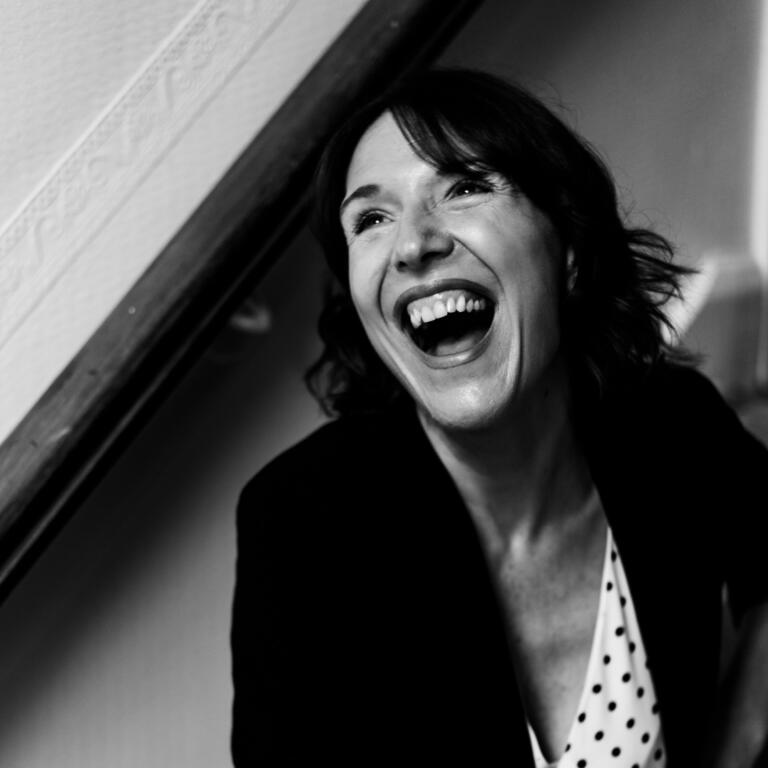
“I want to enjoy the odd drink in my 70s” – Adrian Chiles on cutting down for good
Fiona Cowood
Our writer describes how she’s converted to moderate drinking in her 50th year – and shares expert advice on how to do it.
This week is Alcohol Awareness Week, a time to reflect and talk about our relationship with alcohol and how it affects our health and our finances.
New figures reveal that an average drinker spends almost £63,000 on booze over their lifetime and alcohol is estimated to cost the NHS £3.5 billion every year.
But do you have to turn teetotal to stay healthy and financially solvent? If you enjoy a glass of wine in the evening or a pint on a Friday night, then it’s not all doom and gloom, and I certainly won’t be giving up the booze anytime soon.
This week is Alcohol Awareness Week, a time to reflect and talk about our relationship with alcohol and how it affects our health and our finances.
New figures reveal that an average drinker spends almost £63,000 on booze over their lifetime and alcohol is estimated to cost the NHS £3.5 billion every year.
But do you have to turn teetotal to stay healthy and financially solvent? If you enjoy a glass of wine in the evening or a pint on a Friday night, then it’s not all doom and gloom, and I certainly won’t be giving up the booze anytime soon.
 Credit: Shutterstock / DavideAngelini
Credit: Shutterstock / DavideAngeliniI’ve read all the “quit lit” books and thought long and hard about the health implications of drinking alcohol – of which there are many. But after lots of thought and reasoning, I’ve decided that my life is enjoyed more with some alcohol rather than none (even if that takes two years off my life).
Ever since I had a drop of champagne at a family christening, aged 11, alcohol has been part of the fabric of my existence. I didn’t really start drinking regularly until I was 17, but from then on, it featured in most of the celebrations of life (and some not-so-celebrated occasions).
Alcohol has framed graduations and new jobs, and oiled the wheels of funerals and redundancies.
In my 50th year, I’ve started to be more health-conscious, and of course that means looking at all my habits and deciding what’s good and bad.
But I’ve done the research and the calculations, and to me, those couple of hours of enjoyment are totally worth it.
Many of us know the Government guidance says that men and women shouldn’t regularly drink more than 14 units a week – but there are some weeks when that feels ridiculously hard to stick to. This is where I now expect to receive lots of messages telling me that I have a drink problem – but bear with me, 14 units is just over four large glasses of wine.
This isn’t about binge drinking or waking up fully clothed on top of your bed with no memory of getting there (although many of us have been there at some point). This is about the middle lane of drinking and working out whether it’s helping or hindering me.
To mark Alcohol Awareness Week, I wanted to explain a little about my journey, just in case you are thinking about yours.
Most New Year’s Days for the past decade, I’ve woken up on January 1 completely exhausted. A mulled wine party here, a cheese and nibbles party there; almost a month of drinking. Every. Single. Day. The last couple of years, though, I took back the control.
 Credit: Saga Exceptional
Credit: Saga ExceptionalIn January 2020 I went to a talk by Professor David Nutt, of Imperial College London – he specialises in research on drugs that affect the brain. Some of you may remember he was the UK Government chief adviser who was sacked in 2009 for saying LSD and ecstasy are less dangerous than alcohol. He says that alcohol is the most harmful drug in the UK, as he explains in his book Drink? The New Science of Alcohol + Your Health).
When I went to the talk, I thought he was going to be all puritanical about not drinking, but no. He chatted to the auditorium about how he likes a drink, but takes on board the risks, and calculates whether it’s worth it. He said that sometimes he goes over the 14 units a week mark, and he knows that might knock a couple of years of his life, but he feels that the calculated risk is worth it (in one interview I read, he proclaimed alcohol to be his favourite drug).
As I was writing this piece, I got in touch, and he was happy to offer some advice for Saga Exceptional readers.
“I’m not a prohibitionist,” he says. “If people have decided they want to drink less, I want them to get the maximum out of drinking, with the least amount of harm.
“The issue is alcohol is moreish. If you like to drink, it’s always going to be easy to drink too much. So, it’s up to you to discover strategies that help you to drink to the limit you decide, that suits your finances, time limits and lifestyle.”
“The issue is alcohol is moreish. If you like to drink, it’s always going to be easy to drink too much.”
I’d heartily recommend Nutt’s book, especially as he gets you to think about the kind of drinker you are. But to keep it short and sweet, here are a selection of his tips:
 Credit: Shutterstock / New Africa
Credit: Shutterstock / New AfricaDavid Nutt’s drinking rules:
What comes through strongly from Nutt is his passion for the cause, which is supported by his current venture of non-alcoholic drinks. Touted as the next generation of feel-good drinks, products like Sentia and Alcarelle are made with active ingredients to naturally boost the release of GABA – a neurotransmitter – in your brain. Basically, it copies some of the same chemistry that replicates that calm and ‘tipsy’ feeling – but without the downsides of booze.
I haven’t tried them yet, but a couple of the team have, and weren’t overly impressed, so we don’t foresee them replacing alcohol any time soon.
Still, the growing trend for moderation in the UK is really driving the expansion of low- and non-alcoholic drinks. In 2022, this market saw very strong growth, with £255 million in sales. It seems like many of us have booze reduction on our radar – and that can be for other reasons than health, like cost.
Dr Richard Piper, chief executive of Alcohol Change UK, says: “The average UK adult spends a huge amount of money on alcohol in a lifetime. We might expect that we would experience some significant benefits as a result.
“But the truth is that, although alcohol can bring us some short-term pleasure, it can also encourage us to ‘overdo it’.”
So how do we avoid that part, while still partaking? Piper agrees with Nutt that there are ways we can be more measured with alcohol.
“By taking control of our drinking, we can save money, improve our health, have more energy, improve our memory, have better sleep, reduce anxiety, improve our mood, and have better relationships.
“A great way to start is by recording what you drink for a few weeks to help you understand your drinking pattern, then setting yourself some small achievable goals to get it back under control. Use the free app Try Dry to help you keep track and set personalised goals to help you cut down.”
I certainly found it helpful to look at the patterns of when and why I liked to drink. I found the ‘wine witching hour’ of around 6pm was definitely a trigger for me. Opening up a cold beer or a glass of wine while cooking switched me from the working day to time of my own. So, if it’s midweek and I know I want a clear head the following day, I do it with an alcohol-free beer. Honestly, some of them are so good, they almost match the real thing (bearing in mind on these days, I’m mostly drinking it for the taste and switch-off, not the alcohol buzz). The beers and lagers are definitely winning in this arena, the ‘fake’ wines, not so much.
 Credit: Saga Exceptional
Credit: Saga ExceptionalAlcohol Change UK has tips for cutting down on drinking. One of the ones I found the most helpful is, only drink what you enjoy. Think about the drinks you have because you actually want and enjoy them and cut out those you just drink because they’re there or out of habit. It’s easier than you think to cut these ones out – and you’ll be amazed at the difference this makes. I learned this tip from Adrian Chiles’ book The Good Drinker: How I Learned to Love Drinking Less. We were lucky enough to chat to him in May about how he slashed his booze intake from over a 100 units a week to a more moderate 20 (ish).
Cutting down isn’t always going to be easy, but Chiles has found it the preferable route, and so do I. I definitely savour the drinks I do have more, and I make it to the swimming pool or gym more often, too.
I never feel like I’m missing out, because I never say “never”, just “enough is enough”. And while that carries on, I’m happy to say, “My name is Lou, and I’m a moderate drinker.”

Written by Lou Dearden
Published: Updated:
A journalist and editor since the ‘90s (when lunches were considerably longer – and louder) she’s written for The Guardian, Total Film, Glamour, Sky and Vogue. She’s also collaborated with huge brands like ASOS, Barclays, House of Fraser and Tesco. Having cut her teeth in the food and drink industry, she’s been lucky enough to visit vineyards and Michelin star restaurants – as well as much less salubrious, but no less fun destinations. And as editor of a film magazine for six years, she’s interviewed stars like Michael Palin, Sandra Bullock, Amy Schumer and Goldie Hawn.

Fiona Cowood

Julie Penfold

Gemma Harris

Gemma Harris